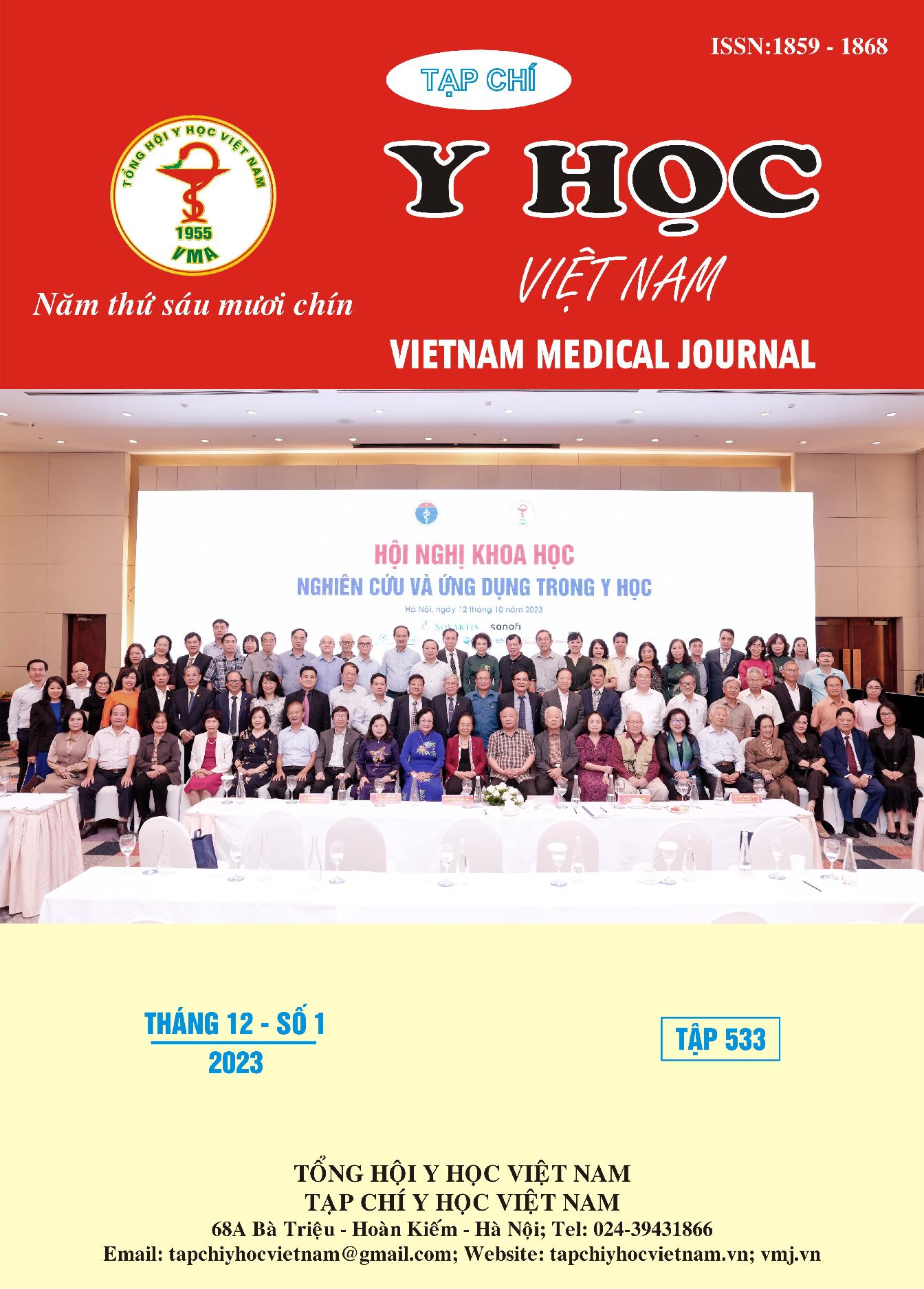INVESTIGATING KNOWLEDGE OF PATHOGENS OF SEXUALLY TRANSMITTED DISEASES AND FACTORS ASSOCIATED WITH CONTRACTING IN MEN
Main Article Content
Abstract
Sexually transmitted diseases (STDs) are an essential health problem in many countries, including Vietnam. Recent studies have shown that Vietnamese men's knowledge about this issue remains incomplete, leading to inappropriate sexual behaviors and high morbidity rates. We conducted a survey of 210 men at the Department of Andrology and Sexual Medicine about their basic knowledge of STDs and their sexual behavior. Our research results showed that the average age when men had their first sexual intercourse was 20.9. Knowledge about STDs of the study participants was incomplete, especially in men who had not engaged in sexual intercourse. Risk factors for STIs are having the first sexual intercourse at a teenage age (<18), smoking, frequent alcohol use, pornography use, having affairs, and having more than two sexual partners. Sexual education measures must be strengthened to improve knowledge about sexually transmitted diseases in men and decrease the prevalence of the diseases in this population and the community.
Article Details
Keywords
STDs, sexual behavior, sexual intercourse.
References
2. S. Nguyen et al., “Lack of Knowledge about Sexually Transmitted Diseases (STDs): Implications for STDs Prevention and Care among Dermatology Patients in an Urban City in Vietnam,” Int. J. Environ. Res. Public. Health, vol. 16, no. 6, p. 1080, Mar. 2019, doi: 10.3390/ijerph16061080.
3. Kim Bảo Giang, Hoàng Văn Minh, Nguyễn Hữu Thắng, Đinh Thị Nhuận, “Kiến thức về bệnh lây truyền qua đường tình dục và tiếp cận với dịch vụ chăm sóc sức khoẻ sinh sản của công nhân nữ tại khu công nghiệp tỉnh Bình Dương và Đồng Nai năm 2013,” Tạp Chí Học Dự Phòng, vol. XXIV, no. 7, p. 139, 2014.
4. P. T. Lan, C. S. Lundborg, I. Mogren, H. D. Phuc, and N. T. K. Chuc, “Lack of knowledge about sexually transmitted infections among women in North rural Vietnam,” BMC Infect. Dis., vol. 9, no. 1, p. 85, Dec. 2009, doi: 10.1186/1471-2334-9-85.
5. Vũ Thái Hoàng, Nguyễn Hoài Bắc, Nguyễn Cao Thắng, “Mối liên quan giữa hành vi tình dục và các bệnh lây nhiễm qua đường tình dục ở nam giới,” Tạp Chí Học Việt Nam, vol. 498, pp. 115–119, 2021.
6. R. Tiwari and M. Shendre, “Role of occupation as a risk factor for sexually transmitted disease: A case control study,” Indian J. Occup. Environ. Med., vol. 9, no. 1, p. 35, 2005, doi: 10.4103/0019-5278.16040.
7. T. D. MacKenzie, J. F. Steiner, A. J. Davidson, W. M. Marine, and F. N. Judson, “Tobacco Use and Other Risk Behaviors among Adolescents in an STD Clinic,” Prev. Med., vol. 27, no. 6, pp. 792–797, Nov. 1998, doi: 10.1006/pmed.1998.0359.
8. L. Arcavi and N. L. Benowitz, “Cigarette Smoking and Infection,” Arch. Intern. Med., vol. 164, no. 20, p. 2206, Nov. 2004, doi: 10.1001/archinte.164.20.2206.
9. V. Murali and S. Jayaraman, “Substance use disorders and sexually transmitted infections: a public health perspective,” BJPsych Adv., vol. 24, no. 3, pp. 161–166, May 2018, doi: 10.1192/bja.2017.14.
10. Nguyễn Hoài Bắc, Trần Văn Kiên, “Đặc điểm lâm sàng và nguyên nhân gây nhiễm trùng qua đường tình dục (STI) ở nam giới tại bệnh viện Đại học Y Hà Nội,” Tạp Chí Học Việt Nam, pp. 32–39.


